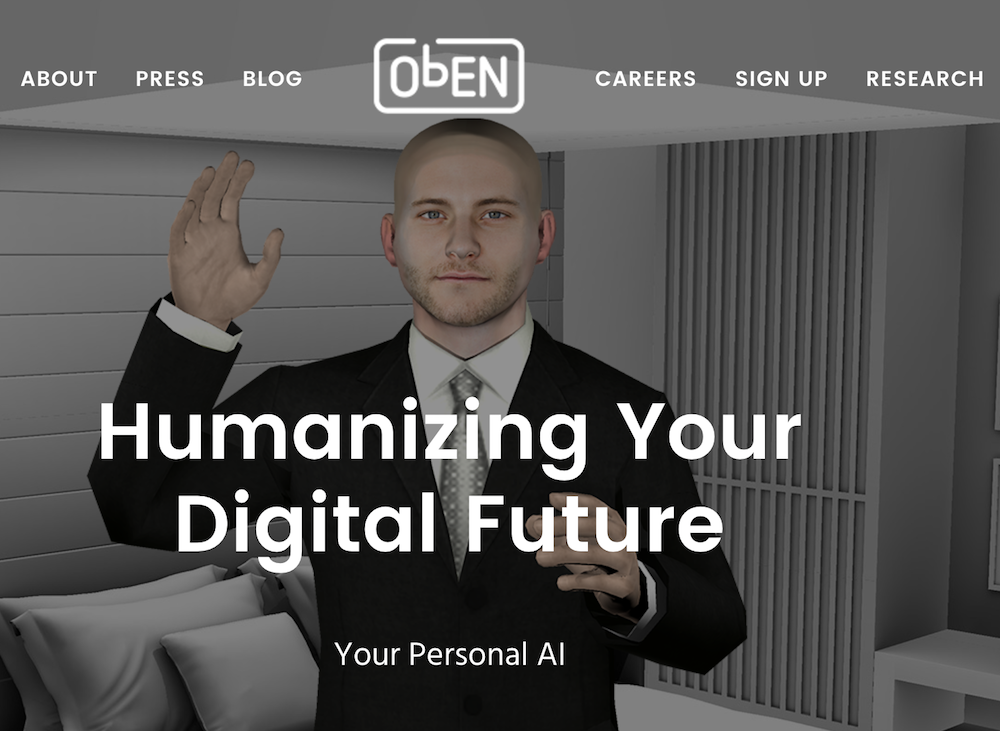It’s easy to get tired, isn’t it? I heard today that a company is implanting its employees with microchips. Is that a PR stunt or just run-of-the-mill creepy management? Another company, called ObEN, emailed me about its unsettling 3D digital avatars (pictured above). According to the company’s website:
ObEN’s proprietary artificial intelligence technology quickly combines a person’s 2D image and voice to create a personal 3D avatar. Transport your personal avatar into virtual reality and augmented reality environments and enjoy deeper, social, more memorable experiences.
The company is owned by HTC VIVE. ObEN’s about page says, “ObEN was created out of a personal desire for the founders to remain connected to their families by ‘leaving behind’ a virtual copy of themselves during long travels.” Obvious Black Mirror parallel is obvious.
The PR person’s email said, “Knowing it’d be their biggest hurdle, the company has already transformed voice personalization using AI and speech synthesis — so now your virtual doppelganger not only sounds like you, but it can also sing like you, but better… and in Chinese.”
I don’t know why these things depress me. There are infinite issues in the world to be upset about, and in fact ObEN isn’t doing anything wrong. I’m the asshole, honestly, for making fun of their technology. People are devoting years of their lives to working on the project. Getting past the Uncanny Valley is hard.
I guess tonight I’m reflecting on how the internet can be a medium of alienation just as much as a medium of connection. Default engagement modes like snark, which is so prevalent on Twitter and Reddit, generate a lot of good jokes by making people feel bad. The targets are abstracted away as obscure names on screens, so it’s easy to do.
Ironically, VR avatars like ObEN’s are supposed to address the problem of compassion collapse. We’ll find out whether they work soon enough…





